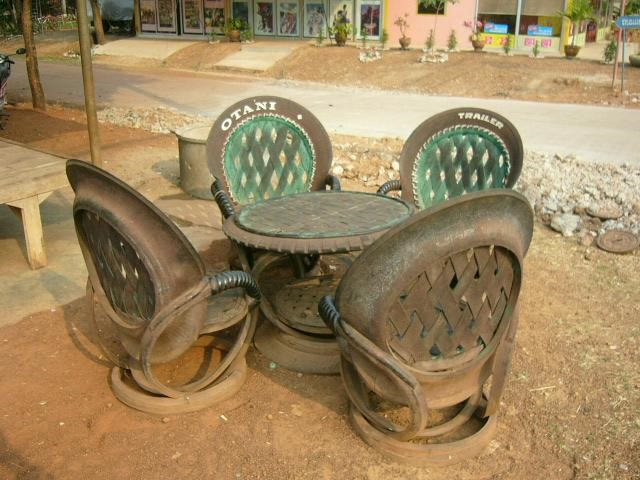
With shabby chic and upcycled furniture trends prevalent in the market, recycling your old furniture has never been cooler. But in an age where businesses and consumers alike are striving to reduce their carbon footprint, there are a number of environmentally friendly benefits to recycling furniture too.

Studies indicate that business premises are the worst offenders for dumping functional fixtures, fittings and furniture in favour of newer items. But homeowners can also be guilty of throwing out things that still have plenty of life left in them. With research from West London Waste indicating that a staggering ten million items of furniture are thrown out each year, perhaps it’s time to think about reviving your old furniture before you take it to the tip.
This not only benefits the environment but it could benefit you financially as one mans junk is another mans treasure. If you upcycle a cupboard then why not try to sell it to someone who needs it. Once they have brought it, then all you have to do is get it to them through companies that offer a Same Day Courier Slough service found at link including www.uk-tdl.com/same-day-courier/same-day-courier-slough.html who will deliver a signed, sealed and delivered package.
Reduce Landfill Waste
UK waste experts have long been warning us that the country’s landfill sites are becoming precariously full. Recycling your old belongings means reducing the amount of waste going to landfill and consequently prolonging the life span of these waste sites which are dangerously close to running out of space.
Conserve Energy and Materials
Refurbishing a product requires far less energy and raw material usage than manufacturing something new. Consider the amount of raw material (wood from the rain forest), energy (fossil fuels used to power machinery) and fuel (diesel and petrol used for transportation) used in creating mass produced furniture for major retailers. Recycling old furniture eliminates all of this.
Better Quality
Antique dealers generally agree that ‘older’ furniture tends to be of better quality than newer, mass produced items. The difference in workmanship is plain to see and many older pieces feature dovetail joints – a sign of solid, high quality construction. Recycling an older but more durable item of furniture may be a more cost effective option than buying something newer. Again, this reduces the amount of waste incurred.
Unique
From a cosmetic perspective, recycling and upcycling furniture gives you the opportunity to create unique pieces to suit your home and tastes.
So next time you think about decluttering, take a second look at that dresser, table or wardrobe and think how many practical and ethical benefits there are of giving it some TLC.







